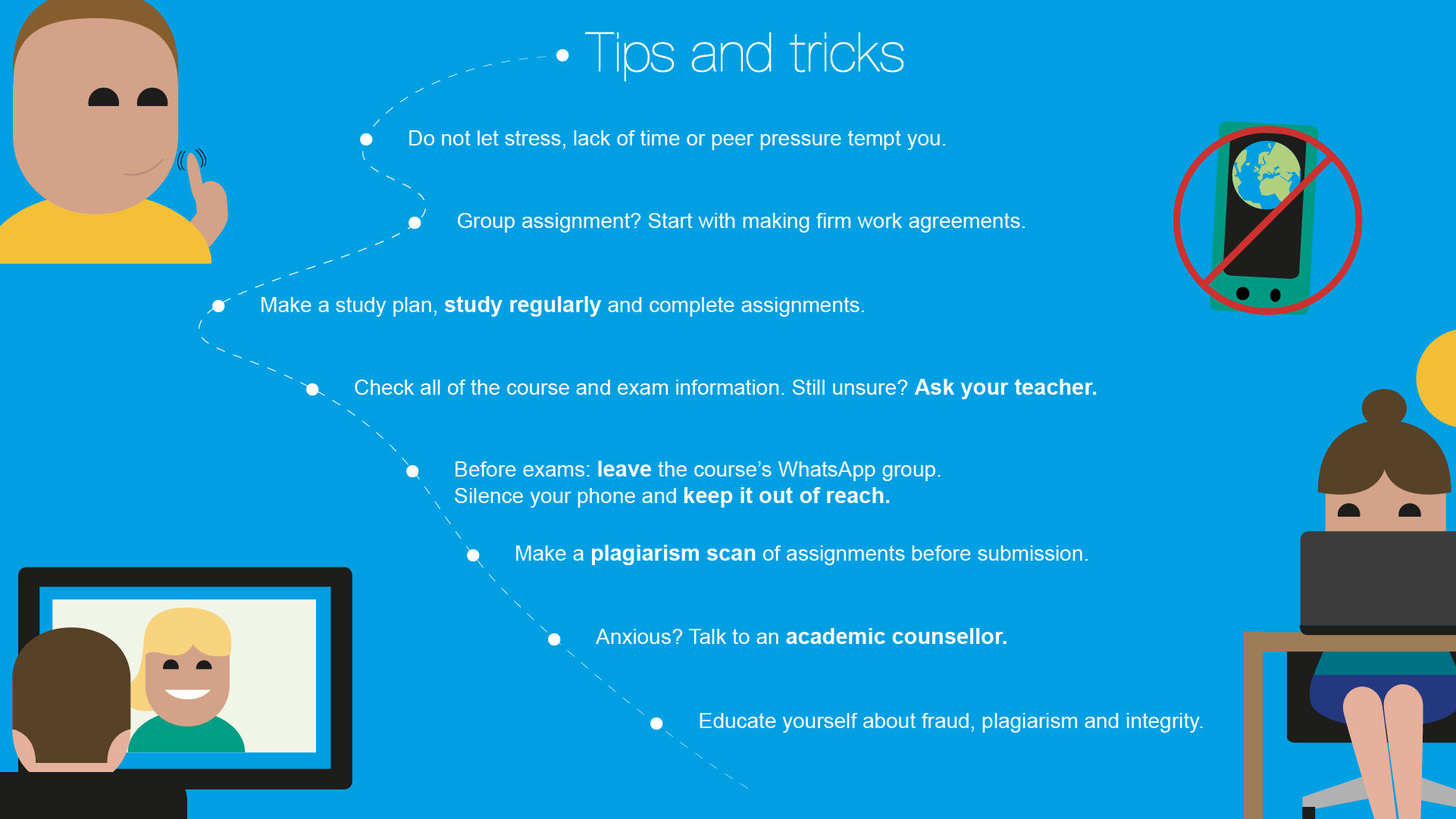Tips & links
You can feel tempted to commit fraud due to stress, lack of time or peer pressure. None of these constitute reasons to ‘stretch the rules’ and you should not be tempted to do so. You are in an academic environment where you are being educated to become an engineer with an independent mind. This includes developing an academic attitude, which involves learning to trust your own critical faculties, accepting failure, and taking responsibility for your own actions.
It is easy to resist temptation if you are confident and not afraid of failure
Therefore:
- Attend classes, study regularly, complete homework assignments;
- Make a study plan;
- Make use of online tutorials and practice materials;
- Attend the discussion after each exam so you can learn from your mistakes;
- Get support from a student counsellor if you are anxious or find it difficult to plan or to study frequently;
- See if there’s a relevant TU Delft course to address your study challenges.
Before exams
- Check Brightspace, course syllabus, study guide for information about the exam. Never skip an exam’s cover page.
- Ask your teacher what is not allowed if you are in doubt.
- Leave the course’s what’s app group. If answers are shared in the group during the exam, you have avoided suspicion of fraud.
- Flee the temptation of peer pressure by putting your phone on silent/flight mode/switching off notifications. And keep it out of reach!
- Prevent panic: try out online exam tools prior to the exam
Group work:
- Make firm agreements about tasks during group assignments
- Try to take a different role for each assignment, so you learn all the necessary skills.
- If a team member is lazy and talking does not help: consult the teacher ASAP.
- Make a Brightspace plagiarism scan before submission.
Educate yourself:
Why not test your citation skills? Not great? The library has webpages on copyright, plagiarism and citation. Or search the Brightspace BSc course catalog for Information Literacy 1 and 2.
- In a hurry? There is an FAQ on plagiarism.
- Read the TU Delft code of conduct, information about examinations and the student charter.
- Check the specific rules that apply to you in the RGBE of your study programme. Find it on the student portal of your faculty.
- When you are starting research: Netherlands code of conduct for research integrity.
- Learn the difference between peer learning and cheating.



